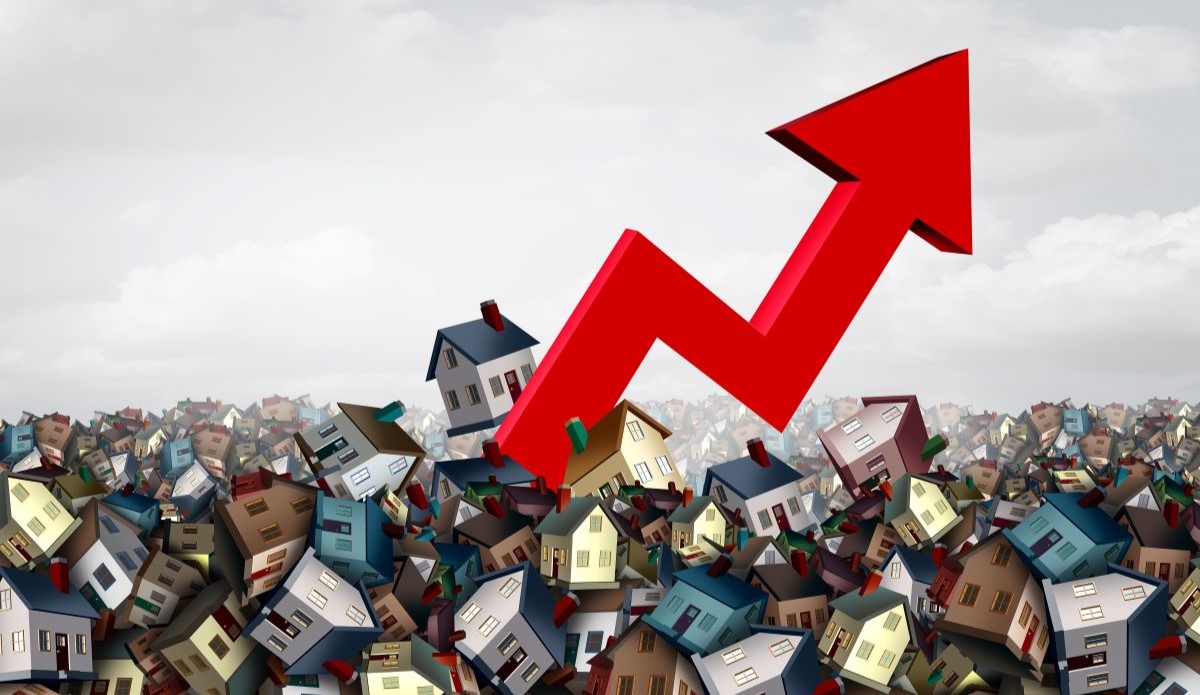The trend line for mortgage rates has been the same for several weeks, even as some of the uncertainty surrounding the 2024 election is fading. The cost of a home loan continues to move in a negative direction for U.S. consumers and housing professionals alike as the downward movement that started in August has been erased entirely.
At HousingWire’s Mortgage Rates Center on Tuesday, the average rate for 30-year conforming loans was 6.99%. That was up 4 basis points (bps) from a week ago and 75 bps higher than when rates bottomed out in late September. Meanwhile, the 15-year conforming loan rate — which had been as low as 5.57% less than two months ago — stood at 6.98% on Tuesday.
The pace of increases is moderating. “Mortgage rates are expected to be lower today as bond yields have been decreasing throughout the night and early morning, slightly dropping further following the recent softer housing starts data,” HousingWire Lead Analyst Logan Mohtashami wrote on Tuesday.
Construction data released Tuesday by the U.S. Census Bureau indicates that even as sales of new homes continue to outperform that of existing homes, higher interest rates and higher costs for building materials will likely lead to a slowdown in housing completions in the coming months. Single-family permits were down 7.7% and starts were down 4.4% year over year in October. That contradicts a healthy pace for completions, which rose 16.8%.
“Housing starts missed consensus estimates and single-family starts declined in October, despite rising builder sentiment. Recent mortgage rate volatility serves as a reminder that elevated financing costs could temper a broader housing market recovery,” Odeta Kushi, deputy chief economist at First American, said in a statement.
Mortgage rates have continued to rise following Donald Trump’s win in the presidential election two weeks ago. But homebuilders are responding positively to a Republican-controlled government come January as the November sentiment index from the National Association of Home Builders moved higher. Fewer builders are using incentives, including price cuts, to lure buyers.
“While builder sentiment remains in negative territory, builders are increasingly confident about selling newly constructed homes,” Kushi said. “Of the index’s three components, builder sentiment on sales expectations for the next six months jumped seven points to 64 — the highest since April 2022.”
Bank of America analysts this week reported that 10-year Treasury yields — which tend to closely influence mortgage rates — have continued to rise to the range of 4.45% to 4.5%. They noted that their “base case has been a cyclical bull market” since October 2023 and their forecast is for 10-year yields to remain below 4.5% for the rest of this year.
Mohtashami also noted “positive” conditions for the spread between the 10-year Treasury and the 30-year mortgage rate, which sank to 2.38% this week. “If I took the worst spreads from last year, mortgage rates would be 0.72% higher today, whereas if mortgage spreads were back to normal, you would see mortgage rates lower by 0.71% – 0.81% right now,” he wrote.
After cutting benchmark interest rates by a total of 75 bps in the past two months, the Federal Reserve won’t announce another policy decision until Dec. 18. Although much can change in the next month based on the direction of jobs and inflation data, the CME Group’s FedWatch tool shows that interest rate traders are placing nearly 60% odds on another 25-bps cut in December.
Real estate investors, who continue to account for a significant chunk of home purchase activity, should remain optimistic in the near term, according to Charles Goodwin, senior director of sales at Kiavi.
“The narrative of continued U.S. economic strength, pesky inflation, and an expanding deficit have dominated the headlines, and have overpowered any notion of mortgage rates coming down in the short term,” Goodwin said in a statement. “That being said, despite the increase in mortgage rates, the leading indicators of the housing market show that home buyer demand remains steady, and resale inventory remains tight. This is a good sign for real estate investors as they look forward to 2025.”

